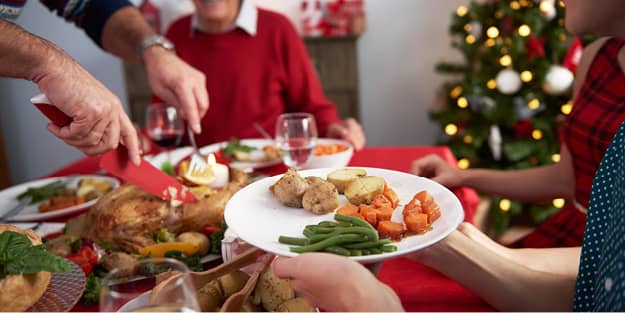
Food safety is the unchanging method of food preparation, handling, and storage to prevent food borne illness and injury. In an effort to ensure foods are safe and stored at the correct temperature, there are certain guidelines which must be adhere too.
An estimated 420,000 people die each year due to contaminated foods; most of whom are small children. The World Health Organisation (WHO) also states that “food safety, nutrition and security are inextricably linked.”
In this festive season, more emphasis is placed on large quantity and variety of foods rather than the method of preparation. However, attention must be placed on food safety to avoid food poisoning.
Safe Food Storage
- Raw meat products are loaded with bacteria especially poultry (e.g. duck, chicken, and turkey) must be kept in the freezer or refrigerator until they are ready to be prepared.
- Store hot foods at 140 degrees Fahrenheit or above.
- Hot foods must not be kept on the countertop nor at room temperature.
- Cold foods such as salads and products with mayonnaise must be kept refrigerated at 41 degrees Fahrenheit or kept on ice.
- Cold foods must not be kept on the countertop, nor at room temperature.
Thawing of Meat, Poultry and Fish
- Never thaw raw meats at room temperature on countertops.
- Thawing should be done under running water or, on the last shelf of the refrigerator in container or in a microwave.
Food Preparation
- Poultry must be cooked to an internal temperature of 165 degrees Fahrenheit for at least 15 seconds.
- When preparing fish, pork, beef, lamb etc., cook to an internal temperature of 145 degrees Fahrenheit for at least 15 seconds.
- Meat products and poultry (anything with stuffing) must also be cooked at 165 degrees
- Fahrenheit for at least 15 seconds.
- In the absence of a thermometer, use a sharp object and pierce the thickest area of the meats or poultry; if blood comes out, it needs to be cooked more.
- When handling poultry, food contact surfaces and utensils must be washed, rinsed, and sanitised because of the amount of Salmonella This prevents bacterial contamination and potential infection.
- Hands must be thoroughly washed especially after handling poultry (i.e., duck,
- turkey and chicken).
When reusing containers with meat products, wash, rinse and sanitise containers before reusing them.
Cooling of hot foods
- Never place hot foods to cool on countertops for extended periods.
- Hot foods must be cooled to 70 degrees Fahrenheit within 2 hours and then, refrigerated until ready to use.
- To cool hot foods, immerse hot foods in ice or place hot foods in shallow stainless-steel containers or stir foods quickly.
- Hot foods must be kept at 140 degrees Fahrenheit (hot) or thrown out after 4 hours.
Food vendors and caterers
- Food vendors must have drinkable running water for food preparation.
- Operators without a sink should obtain a bucket with a tap (running water).
- Disinfect water from tanks and cisterns with regular unscented Clorox; 4 tablespoons to 1 gallon of water.
- Facilities must be present to keep foods hot and cold.
Please note:
All food vendors and caterers in Antigua and Barbuda are required to be trained with valid food safety badge obtained from Central Board of Health within the past 2 years.
Advertise with the mоѕt vіѕіtеd nеwѕ ѕіtе іn Antigua!
We offer fully customizable and flexible digital marketing packages.
Contact us at [email protected]
















